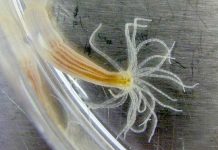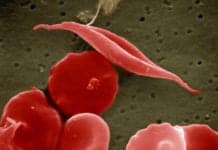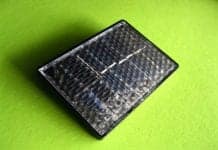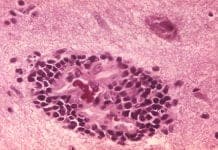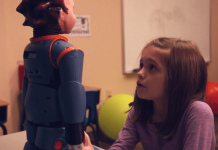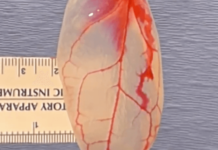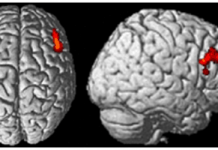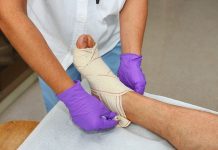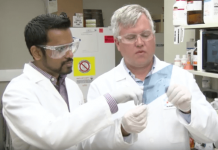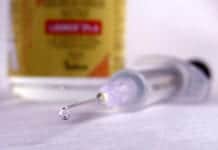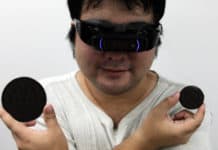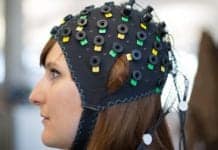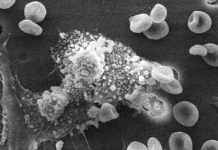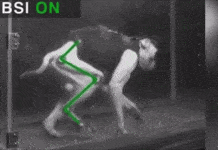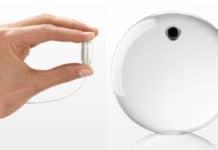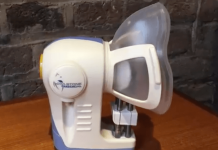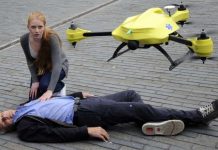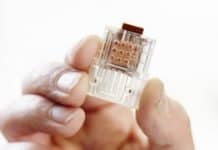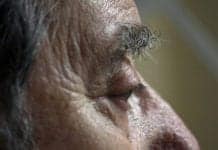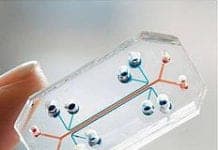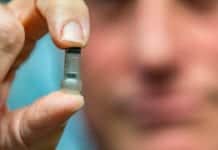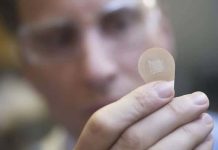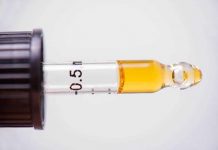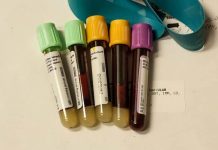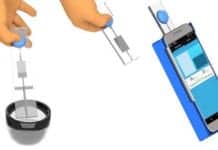Wearable Device Allows Expectant Mothers to Track Contractions
This technology will provide much needed insight and data during a woman's pregnancy.
Scientists Can Now See Cancer ‘Glowing’ Within the Body
This research could literally shed light on how cancer moves in the body.
Mussel Secretions May Help Reduce Scars
Researchers created a mussel-based glue that also led to a healthier functioning of skin cells after a wound had healed.
Do Sea Anemones Hold the Key to Generating Human Heart Cells?
Sea anemones, although without an actual heart, do contain “heart genes” that researchers have found to be identical to human heart genes.
Gene-Therapy Used to Cure Boy of Sickle Cell Disease
French researchers have cured a 15-year-old boy of sickle cell disease by interfering with the production of faulty hemoglobin.
Solar Cells Could Revolutionize the Way Pacemakers Are Powered
Instead of costly, cumbersome batteries, wearable solar cell devices could soon be used to power electronic implants, like pacemakers and brain stimulators.
Scientists Mimic Deadly Rabies Virus to Destroy Brain Cancer Cells
Researchers have modeled nanoparticles the same size and shape as rabies to reach the brain's nerve cells, with the goal of targeting cancerous ones.
Injections, Implants Could Be Next Step in Battle Against HIV
Scientists are ramping up their battle against HIV with upcoming large-scale trials using injections and implants to protect vulnerable groups.
Komodo Dragon Blood Could Be Used to Fight Infections
Komodo dragons possess antimicrobial saliva and blood, a discovery that could have broader implications for fighting infections in humans.
Robot Joins Classroom as Teacher for Autistic Children
Learning social skills from a robot may seem odd, but for children with autism, it can provide a unique experience that is more predictable and engaging.
Scientists Grow Beating Heart Cells on Spinach Leaves
The key to the new research rests on the methods by which plants, such as spinach, transport fluids and other substances.
Wireless Smartphone Device Could Reduce Migraine Pain
The high-tech device could be very attractive to individuals who are wary of taking prescription painkillers for their migraines.
Teen Creates Bra That Detects Breast Cancer
Julian Rios Cantu, an 18-year-old teen from Mexico, was determined to create the cancer-detecting bra, called "Eva," after witnessing his own mother's struggle with breast cancer.
Music Therapy May Reduce Pain After Surgery
Patients recovering from surgery who received a live music performance, which was tailored to their musical preferences, all reported a drop in pain level.
This Antioxidant May Be the Next Big Thing in Skin Care
Researchers may have discovered a powerful new way to invigorate aging skin.
Light-Therapy Treatment Delivers Non-Surgical Alternative for Prostate Cancer Patients
A new treatment for early-stage prostate cancer uses light-sensitive drugs and laser therapy to obliterate cancer cells.
Brain Stimulation Can Boost Honesty, Limit Selfish Feelings
People who received the transcranial current on a specific region of the brain were less likely to cheat than people who didn’t receive the brain stimulation.
Scientists Create Solar-Powered Skin for Prosthetic Hands
Scientists have created a new use for the sun’s rays.
Smart Bandages That Monitor Wounds Are Getting Closer to Trials
The smart bandages would report their analysis through a regular broadband network and are designed to monitor an array of physical attributes.
From AIDS to Cancer, Scripps Laboratories Are Revolutionizing Medical Research
At Scripps Research Institute, scientists are making some remarkable discoveries in their research into how disease infects our bodies.
Promising Alzheimer’s Vaccine Moves Closer to Human Trials
The vaccine testing program is currently underway in pre-clinical trials, and the researchers plan to move forward with efficacy tests among human subjects once they conclude.
Can Virtual Reality ‘Diet Goggles’ Help You Lose Weight?
The goggles can reduce appetite, make low-fat foods taste delicious and even trick our brains into thinking we’re eating more than we actually are.
New Technology Deciphers Thoughts of Paralyzed People Who Can’t Speak
By measuring a person’s electrical activity in the brain, the brain-computer interface allowed patients to communicate in response to simple questions.
Grape Seed Extract Lengthens Lifespan of Tooth Fillings
Grape seed extract was found to strengthen a part of the tooth known as dentin.
Scientists Disable Cancer’s Ability to Spread Using Tiny Gold Rods
The new technique showed that using tiny gold rods heated by lasers essentially sawed off the cancer cells’ legs.
Flavored Spray Could Help Kids to Swallow Pills
Not being able to swallow pills can potentially stop kids from taking life-saving medicine. A sweet flavored spray could be the answer.
Peppertree Berries May Fight Deadly Superbugs
The ready abundance of the peppertree plant means that, should the treatment prove effective in human trials, the medical community would face no shortage of the disease-fighting berries.
Wireless Router Senses How You Walk and How Healthy You Are
The device, called WiGait, can monitor and track a person's walking speed and movement without the need for a wearable.
New Blood Test Can Reveal Just How Well You’re Aging
Analyzing biomarker signatures in the blood offers insight into a person’s risk for developing age-determined diseases and even death.
Wireless Brain Implant Helps Paralyzed Monkeys to Walk Again
A wireless chip implanted in the brain communicates with the spinal cord below the injury.
Smartphones Could Help Discharge Emergency Room Patients Faster
On average, patients whose doctors received lab results on a smartphone left the hospital 26 minutes faster than patients whose physicians had to check the hospital’s electronic system.
Swallowing Balloon Capsules May Help Shed Double The Weight
The Obalon balloon system is a new treatment that is slated to hit the market in January. It involves swallowing gas-filled balloon capsules in order to help curb overeating.
Sleep Tracker Inaccuracy May Cause Obsessive Behavior
With approximately 15 percent of Americans wearing activity trackers, the question remains as to whether it is doing them any good when it comes to accurately tracking sleep patterns.
Brain Implant Helps Paralyzed Man Use His Thoughts to Feed Himself
For the first time in eight years, a paralyzed man in Cleveland, Ohio fed himself dinner with the help of an innovative brain implant.
Deadly Spider Venom Holds Promise as Stroke Treatment
The results so far, gained in studies on rats, show a powerful way to limit the effects of stroke damage.
Cancer Treatment May Be Revolutionized Through Personalized Vaccines
Vaccines built around a person’s own DNA have proven effective at beating back cancer, two studies show.
While the studies are small and the results,...
Researchers Are Developing Machines to Smell How Healthy You Are
Researchers believe scent-based technology holds vast promise in improving health outcomes due to the possibility of early detection.
Brain Scans Could Spot Autism Even Sooner in Infants
In the study, the researchers correctly predicted 80 percent of the infants who would meet the criteria for an autism diagnosis at age two.
Drones to the Rescue: Flying Defibrillators Reach People Faster Than Ambulances
Swedish researchers found that attaching defibrillators to high-tech drones shaved off an average of 16 minutes for response times, a difference that can mean life or death for heart attack patients.
USB Stick Doubles as HIV Test
British scientists have developed an HIV test on a USB stick, which quickly and accurately measures the levels of the virus in a person’s blood.
Immunotherapy Could Be the Next Step to Preventing Alzheimer’s
Solanezumab is the name of the antibody researchers are using with hopes to interrupt or even reverse the formulation of beta amyloid plaque within the brain.
Genetic Variant Tied to Greater Obesity Risk in African Americans
The new focus opens up additional opportunity for understanding — and perhaps preventing — rates of obesity among African Americans.
New Microchip Technology Could End Animal Testing Forever
A team of biological engineers at Harvard have developed small-scale models of actual human organs in an effort to gauge their reaction to medication and provide a window into how these organs function.
Jet Stream Vaccine Technology May Replace Needles
The MucoJet device is a painless way to administer vaccines orally.
Flu Vaccine Patch Kicks Painful Needles to the Curb
The patch can also be stored safely for a year without refrigeration, offering a vital option for health care in the developing world.
The Key to Lower Blood Pressure Might Be in Your Inbox
After 12 months of web-based interventions, the study group saw their average systolic pressure drop closer to the normal blood pressure range.
Marijuana Extract May Reduce Seizures in Epilepsy Patients
Cannabidiol, or CBD, was found to reduce seizures among patients with a rare form of epilepsy by nearly 40 percent.
New Blood Test Aims to Detect Cancer Sooner Than Ever
By zeroing in on miniscule amounts of DNA, researchers believe they can catch cancer early and save countless lives.
Inexpensive Drug for Bleeding After Childbirth Proves to Saves Lives
In studying ways to reduce maternal mortality from childbirth hemorrhaging, a group of researchers revisited tranexamic acid, a drug invented in the 1960s by a Japanese woman.
Smartphone App Claims to Accurately Test Male Fertility
The fertility analyzer uses an “optical attachment” that plugs into a smartphone and a one-use device to collect a semen sample.





